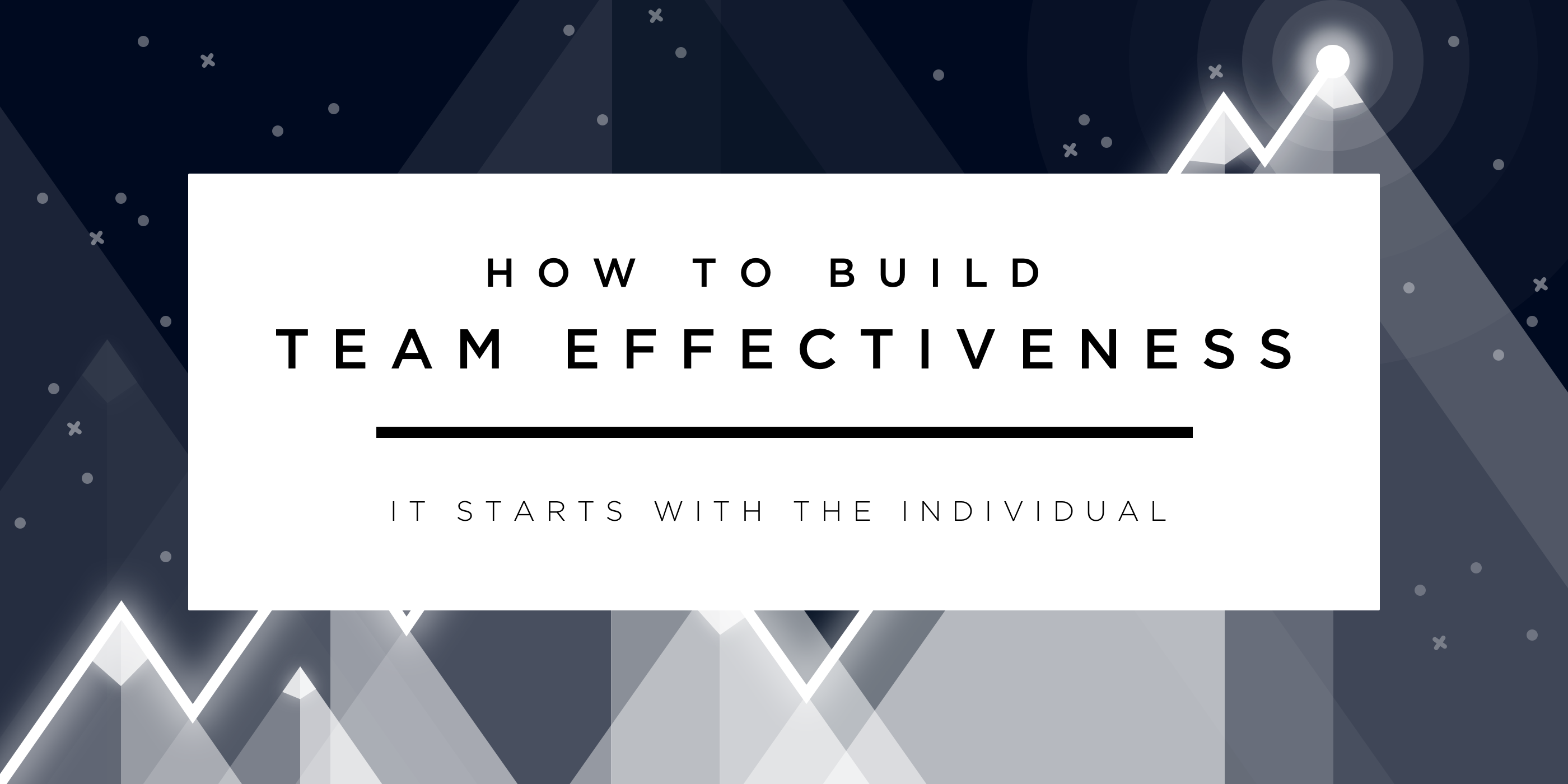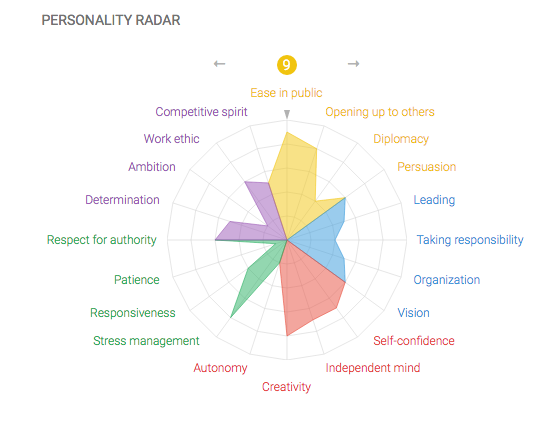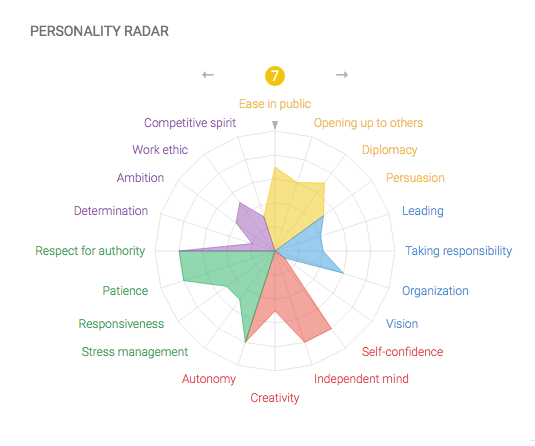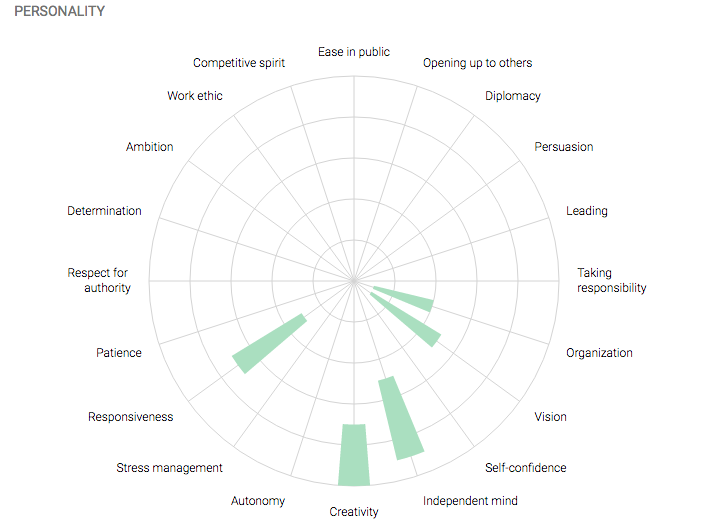Are Your Personality Traits Right for Your Career Path?

Long gone are the days of separating “life” and “work” into two separate buckets hoping to achieve some sort of balance. Employers and employees alike are now becoming increasingly aware that the personality traits that make each of us unique at home are the same things that can make us successful in the workplace. This shift has been highlighted as the effects of the COVID-19 pandemic further blur the line between professional and personal.
Now, instead of simply checking boxes of required technical abilities and education, job seekers are having to ask themselves deeper questions about their personalities. These questions can include:
“Am I more reserved around new people or do I feel at ease when I’m in the spotlight?”
“Am I comfortable when things are not organized or do I prefer instructions in unfamiliar situations?”
“Do I simply focus on getting a task done or do I take time to focus deeply on the details?”
This amount of self reflection can be overwhelming when there’s a ticking clock for finding work! How can job seekers better understand themselves in order to prepare for the new world of job searching? Thankfully, there is more information than ever to identify which personality traits are more likely to lead to success in a given career path.
Identifying Your Personality Traits
Most job seekers are familiar with the standard questions they’ll likely face in a job interview, such as, “What are your strengths/weaknesses?” However, it’s all too easy to fall into the trap of telling meandering stories that are heavy on details but light on proven takeaways.
What hiring managers are really looking for in job interview responses are what are known as, “transferable skills.” These are the types of skills that are not specific to a single industry or role. Rather, transferable skills — such as personality traits — can be used in a variety of settings.
In order to go deeper when identifying your transferable skills, consider taking an assessment backed by science, such as MyPrint®! Supporting anecdotal evidence from your experiences with tools built on data-driven people analytics can add credibility to your claims. Furthermore, the MyPrint assessment evaluates individuals on 13 distinct dimensions of personality, and gives information on 26 total personality traits. Pinpointing your personality traits can help narrow your job search to roles that are more likely to be the right fit for your career.
Popular Fields and Noteworthy Personality Traits
Once you have a better understanding of the personality traits that make you unique, it’s time to connect them to jobs that will allow them to shine! Based on our Talentobe user database, here are the key personality traits that align with 14 of the most in-demand career paths today:
- Administrative: Compliant, Structured, Conventional Thinker, Practical
- Art Design: Imaginative, Spontaneous, Critical-Thinker, Precise
- Education: Empathetic, Modest, Extroverted
- Engineering: Precise, Confident, Determined, Positive, Individualistic
- Finance/Bank/Accounting/Audit: Confident, Positive, Relaxed, Determined, Individualistic
- HR/Purchasing: Positive, Extroverted, Confident, Striving
- Health and Social Care Provider: Empathetic, Extroverted, Imaginative, Big Picture, Striving
- Information Technology: Confident, Relaxed, Positive, Striving
- Legal: Determined, Relaxed, Big Picture, Compliant
- PR/Writing/Editing: Empathetic, Imaginative, Extroverted, Spontaneous
- Production: Positive, Practical, Confident, Extroverted, Striving
- Research Science: Critical-Thinker, Imaginative, Assertive, Big Picture
- Sales: Extroverted, Practical, Positive, Determined, Striving, Patient, Confident
- Security: Confident, Positive, Relaxed, Striving, Assertive, Determined, Practical
Do any of these personality trait groupings sound like you? If they do but you’re currently on another path, it might be the right time to consider a change! With the transferable skills needed for a successful foundation, all that’s left is to fill in the hard skills gaps you may be missing. If you’re currently working in any of the fields above and are lacking some of the soft skills that are prominent in your position, that’s okay too! This is the perfect time to start developing your strengths in the areas critical to your industry.
Are you interested in learning more about the personality traits that make you…you? Click here to take MyPrint and receive a detailed assessment of your unique personality, motivational and behavioral traits! Then, you’ll be able to use that information to connect your unique strengths to today’s most in-demand jobs.
How to Build Team Effectiveness: It starts with the Individual

We have been conditioned since we were children to use teamwork. As a toddler you worked with your imagination and your team of playmates to create a different world. Or maybe you worked with your siblings to build the most effective Lego fortress. Learning and productivity and the uniqueness of your work was most likely positively correlated to the ability of you and your teammates, friends, siblings to communicate. You knew your skills and you weren’t afraid to express and utilize them.
Fast forward 20, 30 maybe 40 years and you now know the “best” characteristics to have as a teammate (thanks, Google). It doesn’t matter what your natural skills are, you have read studies about what employers want to hire and you identify with that to make you competitive. You probably believe yourself by now! You alter your skill set for the job. Anyone who has edited their resume for a certain job can relate…
Things are a little backwards right now. A job is open and we try to fit the person in the job instead of fitting the job to the person.
An opening in a team arises and we add someone based on their experience and usually don’t have much of an idea about how they will work on a team besides the characteristics they portrayed from their years of research on what you want to hear. We hire in hopes that they will fit with the team dynamic.
I thought I knew a lot about my natural skill set because I love personality tests. Myers-Briggs, the Enneagram, you name it I have taken it. The thing about these tests is they were putting me in a box again. Fitting me to the type instead of the type to me. My colleague and I have the exact same Myers-Briggs score. We are both ENFJ’s which account for about 5% of the population. The Enneagram also named us both “The Helper”. I can tell you right now if you put us on a team we will not be doing the same job and we both bring very different skills to the table in a team environment.
So we are left with a disconnect of how our personality can help us be effective on a team. How our natural characteristics can transfer into the workplace. It was not until I took this questionnaire that I had clarity on how my personality skills can serve me on a team. I passed the test onto my colleague and was surprised, but then again not, that our results were far from the same.


If you are the individual reading this, it’s time to get honest. Take yourself out of the work equation for a moment and think about what part you play on the team at home, with your friends, or in public. Think of your instinctual skills and try to bring that to your work team. Maybe have a conversation with your manager about how you can bring your skill set to the forefront of your work.
If you are a manager, hold tight! Now that we know the success of the team is built on individual awareness, we can turn our attention to the factors of building the most effective and productive team in Part 2 of How to Build Team Effectiveness: Bringing Balance with Empowering Management.
Curious to find out your professional traits? Check out our page to take your free personality assessment today. And if you like this post, please hit the ❤️ button below or give me a shout on Twitter.
How to hire a super star sales professional.

3 unique traits in those who close deals
A great product or service can easily go unnoticed if it does not have the right people to sell it. As a hiring manager, how can you find sales stars that shine? With thousands of sales professionals in our data base, we have created a profile on what makes an individual a great deal closer — & it is not what you may think. According to our data, top sales performers display the following traits:

#1 Creative: Lives (and thinks) outside the box
There are many ways to sell a product or service, and the same approach is not right for everyone. Creativity is often required to take a customer from “maybe” to “yes” and close a deal.
A successful salesperson thrives in an environment where they need to constantly adapt to changing goals and creatively solve problems on a daily basis. You don’t want someone who sometimes thinks outside the box, you want someone who doesn’t know that the box even exists.
#2 Responsive: Intuition based decision making
Have you ever felt like the car salesman down the street read your mind? Well, they did. Salesmen/women rely so heavily on their intuition that they can easily get in their customers head and are usually two steps ahead. Genuine sales professionals are quick on their feet, and favor spontaneous action over reflection.
But while they are quick they are also swift and can adapt to a new situation at the drop of a hat. Their chameleon like nature allows them to respond to the personalities of a rainbow of potential customers.
Team members who have mastered the art of clear and consistent communication with their clients will lead your company to higher customer satisfaction, and a better bottom line as a result.
#3 Independent mind: Supervision not required
A rockstar salesperson should be able to take a goal and run with it. That means setting their own schedule and ensuring that all relevant goals are met on time.
Self motivation is crucial, especially in environments where sales reps work remotely or travel frequently. Managers should be able to support their teams without getting in the weeds on day-to-day details.
The total superstar sales package
The key to making a sale is understanding customers’ needs and figuring out how your product or service can meet them — the intersection of creativity, responsiveness, and independence. Find someone who has all three and you are well on your way to success.
While every employee is unique, these insights may help you determine which applications rise to the top of the pile. For help hiring your next sales professional use this job matching system to see how your candidates stack up against your current sales team. Stop relying on your gut instinct for hiring (leave that to sales) and start making data-driven decisions.
Want to read more recruiting tips and tricks? Check out my blog page.
Are you in the wrong job?

How using your personality strengths leads to job satisfaction.
You have a job, but is it really the job you want?
Sure, you may get along with your coworkers and feel fulfilled by your work at least some of the time, but you still can’t resist checking out job posting sites or asking around about potential openings at happy hour.
You are not alone. It’s easier than ever to apply for jobs, network with companies and recruiters, and work from the comfort of home or your local coffee shop — meaning that workers are changing jobs more often than ever.
According to the Society of Human Resource Management, about one-third of new hires quit their jobs after six months, and CareerBuilder reports that 32 percent of employers expect their employees to job hop.
Some who leave jobs find that the grass isn’t always greener on the other side, beginning another cycle of job searching. However, a new wave of data-driven hiring is making it easier for companies and employees to find long-term matches.
If the employee’s personality fits with the company, chances are the employee will stay longer. And, companies are using personality data to understand the roots of human behavior and how to shape their businesses accordingly — a strategy known as people analytics.
They know your buying habits and can compare them to similar consumers to suggest new products for you, predict future behavior, or improve customer service. Entrepreneur reports that the Container Store is doing just that by using wearable technology to track employee interactions with customers on the sales floor.
People analytics applies to hiring, too. Search committees and sorting through endless stacks of resumes to arbitrarily pick a candidate may soon become a thing of the past in favor of data-driven placements that match a candidate’s personality with the open position and company’s culture.
There are many options out there when it comes to online personality assessments, but not all are created equally. Talentobe’s personality test was specifically designed for a professional setting. The questions are no longer than a Tweet and each has only two possible answers. They fly by and the entire thing can be completed in just a few minutes.
Are you a leader or a follower? Are you open to new assignments and challenges? How comfortable are you speaking in public and interacting with others you don’t know? The psychometric test gives you answers to those questions and uses a scientific algorithm to provide you with the career advice you have been yearning for.
The answers from your personality test can be shared on social media or with recruiters who can place you into jobs that fit your skill set and puts you on the path toward a long-term career in that field — minimizing the potential that you’ll be job hunting again in six months or a year.
Before you hit the job board next time, consider taking a personality test to find a long-term career that motivates you and uses your strongest traits to your advantage.
The Importance of Company Culture and How to Hire the Right Fit

6 tips on hiring employees who wont run for the door.
Everyone likes to wake up wanting to go to work! And every company wants their employees to be motivated, productive and loyal. One of the biggest factors in fostering a hard-working, happy team is by not only creating a vibrant company culture, but also making sure new employees fit into your company’s unique style. Whether your company is a more casual, “8–5”, family friendly environment, or a high pressure, career lifestyle, competitive, highly results-oriented workplace, using smart recruiting tools like predictive analytics to evaluate candidates will help ensure the perfect match.
Programs that foster company culture like flex time, happy hours, volunteer work, recognition opportunities, cross departmental “lunch and learn” events, competitive pay structures and opportunities for bonuses all make employees less likely to take calls from other companies.

“Culture is the number one contributing factor to every single aspect of the employment relationship — from both the employee and company perspective,” says Amber Rhoton, Owner/President of Owner and Chief HR Advisor for Amplified HR. “A strong culture is the fastest way to weed out under-performers and cultivate superstars.”
Here’s how to find the perfect match for your company’s culture and avoid costly hiring mistakes. Job searchers, listen up to increase your chances of getting hired!
- Ask candidates to take a personality test such as Talentobe’s which in a few clicks provides a comparison of the candidate to your current workforce and is designed to allow you to get an idea of who a person really is and what motivates him or her.
- Have multiple people speak with the candidate to see how well he or she meshes with different personalities. Also, meet a candidate on several occasions on different days and times to gauge the consistency of the fit.
- Watch how a candidate interacts with the receptionist. It may seem minor, but you want to hire a genuinely nice person. If someone is cold or rude to the person they are first meeting in the lobby, it’s not a good sign.
- Check references, and not just the ones a candidate gives you. Dig a little deeper and find an objective opinion on someone’s past performance and potential fit. It’s hard work but will pay off to avoid hiring the wrong person.
Observe how smoothly offer negotiations go. If a candidate negotiates heavily and isn’t easy to work with during that process, it’s a sign they aren’t the right person for the job. - Ask the hard questions. If you know your company’s culture requires night and weekend work, find out how a candidate will handle that. Be transparent on all the down sides of a position and when someone is still excited to join, you’ll know they’re right for the role.
“Match your applicants with your culture and the rest will fall into place,” says Rhoton. It’s way more important, in my opinion, than skill set or experience.”
By ensuring your new hires match your company’s dynamic, you’ll not only reduce your turnover but also increase engagement and overall performance of the entire team. And with today’s easy-to-use candidate-culture matching technology, there’s no excuse not to!



